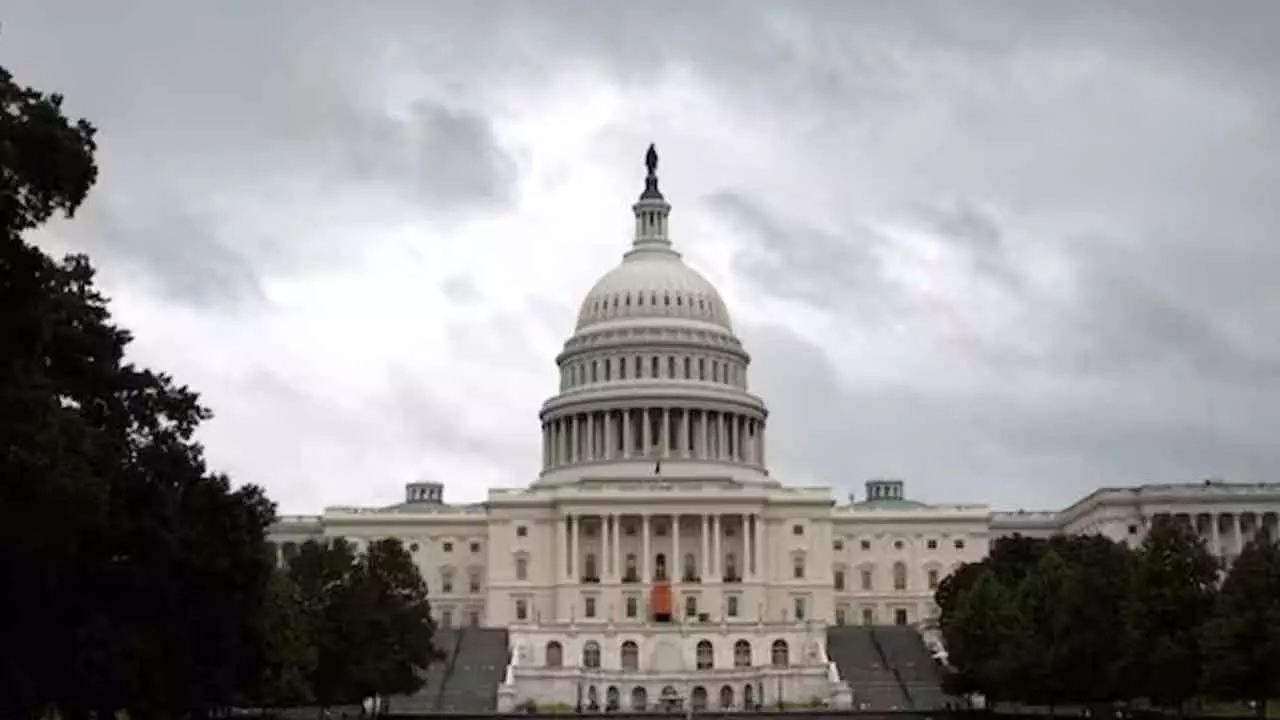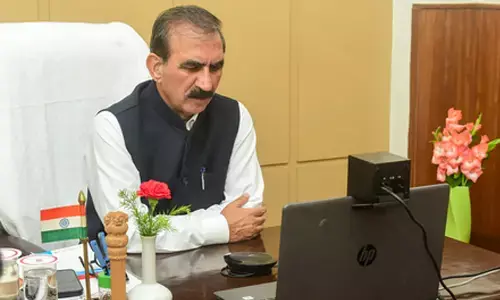US Senate passes annual defence policy bill, sending it to Biden for signing
Share :

The US Senate voted to pass the 895-billion-USD defence policy bill for fiscal year 2025, which, having previously cleared the House, now awaits to be signed into law by President Joe Biden.
The 2025 National Defense Authorization Act (NDAA) was passed in an 85-14 vote, well above the 60-vote threshold needed for passage in the 100-member upper chamber. Military spending approved in the bill represented a 1 per cent increase from the previous year's top line price tag of $886 billion.
Bernie Sanders, the independent senator representing the state of Vermont, voted against the bill, railing against what he considered a needlessly high amount of military spending that failed to address what the country really urgently needed, Xinhua news agency reported.
"We do not need to spend almost a trillion dollars on the military, while half a million Americans are homeless, children go hungry and elderly people are unable to afford to heat their homes in the winter," Sanders said in remarks on the Senate floor.
Sanders said during the Senate's procedural vote on the bill on Monday that the US does not "need a defence system that is designed to make huge profits for a handful of giant defence contractors while providing less of what the country needs."
This year's NDAA also authorised greater-than-usual pay raise for service members, a 14.5 per cent increase for lowest-ranking troops and a 4.5 per cent increase for the rest of the armed forces.
One of the most controversial issues in the NDAA centered on the health insurance coverage for members of the military and their children who are recipients of gender-affirming medical treatment. The current bill, a compromise between Republican and Democratic members of Congress, would ban TRICARE, the Pentagon's health care program, from covering transgender children of service members.
Republicans pushed for prohibiting TRICARE from covering adults in the military who receive gender-affirming care, as well as reversing the Pentagon's existing policy of funding for the travel of service members who have to cross state borders for abortion procedures because the states where they are stationed ban abortion. These efforts failed in the face of Democratic opposition.
On the US military's involvement overseas, the bill authorised more than what was requested by the Biden administration for investment in building military capabilities in the so-called "Indo-Pacific region," totaling $15.6 billion.
It also authorized an expansion of US-Israel joint military drills amid the conflict in the Middle East, meanwhile prohibiting the Pentagon from citing casualty numbers from Hamas.
Short of directly providing fund to the Defence Department, the NDAA authorises the Pentagon's programs in the upcoming fiscal year, including the purchase of weapons and equipment and the maintenance of the US military's competitiveness.
Funding for the Pentagon in fiscal year 2025 will have to be passed by Congress in a separate spending bill no later than the fiscal year's end on September 30, 2025.













